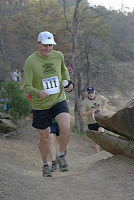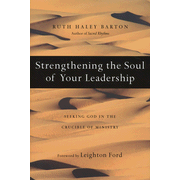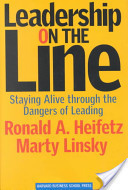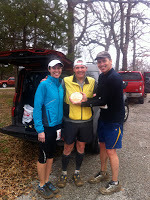C. Gene Wilkes's Blog, page 11
April 10, 2012
Gotta Luv Bubba
The most unlikely player won The Masters golf tournament this past Easter weekend: Bubba Watson. If you were to paint a profile of a pro golfer, Bubba Watson would not fit in it at all. Never had a lesson. Never had a coach. Never watched a video of his swing. He's a Georgia Bulldog who own the Dukes of Hazards' General Lee 1. And, he makes goofy videos with his friends. Masters' Champion? Not from that profile. Yet, he just won the tourney that any golfer would say, "You'll never be considered great until you win the Masters." You gotta luv Bubba.
 Bubba WatsonI don't think it was a coincidence that he won on Easter Sunday. What better time for a player who had confessed his trust in Jesus, baptized with his wife, and had been working to change his habits on the course in order to reflect his faith to win on Easter Sunday. Check out his Twitter profile @bubbawatson. The order of who he is goes: Christian. Husband. Daddy. Pro Golfer. Looks like he has his priorities in order to me. His tweet on Victory Sunday? "To God be the Glory!!! #Masters"
Bubba WatsonI don't think it was a coincidence that he won on Easter Sunday. What better time for a player who had confessed his trust in Jesus, baptized with his wife, and had been working to change his habits on the course in order to reflect his faith to win on Easter Sunday. Check out his Twitter profile @bubbawatson. The order of who he is goes: Christian. Husband. Daddy. Pro Golfer. Looks like he has his priorities in order to me. His tweet on Victory Sunday? "To God be the Glory!!! #Masters"
What do Bubba Watson, Jeremy Lin, and Tim Tebow have in common?
I suggest that none of them fit their sport's typical profile of a player, yet they are winners, AND they openly confess their trust in Jesus.
How many still say Tim Tebow is not NFL-quality quarterback material?
Jeremy Lin, Asian and a Harvard grad, in the NBA?
Bubba Watson, a pink driver, no lessons or coach, #2 in the Fed Ex Cup rankings?
I love the fact that the outside-the-profile players win, get the spotlight for a moment, and when they do, they honor the outside-the-profile Savior who rescued them and gave them a greater purpose than their sport.
When Paul, the Apostle, observed the motley crew that made up the church in Corinth, he wrote this:

 Bubba WatsonI don't think it was a coincidence that he won on Easter Sunday. What better time for a player who had confessed his trust in Jesus, baptized with his wife, and had been working to change his habits on the course in order to reflect his faith to win on Easter Sunday. Check out his Twitter profile @bubbawatson. The order of who he is goes: Christian. Husband. Daddy. Pro Golfer. Looks like he has his priorities in order to me. His tweet on Victory Sunday? "To God be the Glory!!! #Masters"
Bubba WatsonI don't think it was a coincidence that he won on Easter Sunday. What better time for a player who had confessed his trust in Jesus, baptized with his wife, and had been working to change his habits on the course in order to reflect his faith to win on Easter Sunday. Check out his Twitter profile @bubbawatson. The order of who he is goes: Christian. Husband. Daddy. Pro Golfer. Looks like he has his priorities in order to me. His tweet on Victory Sunday? "To God be the Glory!!! #Masters"What do Bubba Watson, Jeremy Lin, and Tim Tebow have in common?
I suggest that none of them fit their sport's typical profile of a player, yet they are winners, AND they openly confess their trust in Jesus.
How many still say Tim Tebow is not NFL-quality quarterback material?
Jeremy Lin, Asian and a Harvard grad, in the NBA?
Bubba Watson, a pink driver, no lessons or coach, #2 in the Fed Ex Cup rankings?
I love the fact that the outside-the-profile players win, get the spotlight for a moment, and when they do, they honor the outside-the-profile Savior who rescued them and gave them a greater purpose than their sport.
When Paul, the Apostle, observed the motley crew that made up the church in Corinth, he wrote this:
Brothers and sisters, think of what you were when you were called. Not many of you were wise by human standards; not many were influential; not many were of noble birth. But God chose the foolish things of the world to shame the wise; God chose the weak things of the world to shame the strong. God chose the lowly things of this world and the despised things—and the things that are not—to nullify the things that are, so that no one may boast before him. It is because of him that you are in Christ Jesus, who has become for us wisdom from God—that is, our righteousness, holiness and redemption. Therefore, as it is written: "Let those who boast boast in the Lord." (1 Corinthians 1:26-31)Sounds like God still chooses Bubbas and they still boast in the Lord! How about you?
Published on April 10, 2012 05:25
April 3, 2012
Peacemakers, not Peacekeepers
I am a follower of Jesus because his life matched his message. I have been impressed with charismatic leaders who can capture a crowd with speeches and promises only to find his life is nothing like his message. Jesus lived everything he taught...even his promise he came to "give up his life as a ransom for many." (Mark 10:45)
Jesus stepped out of obscurity into the messianic limelight and taught, "Blessed are the peacemakers, because they will be called the children of God." (Matthew 5:9) What is it about being a peacemaker that gains someone such a title or reputation? Follow Jesus and find out. To gain the reputation as a child of God, you need to know these things about who Jesus blessed that day.

Peacemaking is not the same as peacekeeping. Jesus did not walk into hostile situations or broken relationships and ask, "Why can't we all just get along?" and broker so-called peace. Nor, did he avoid century-old prejudices by walking around a neighborhood of a different racial group, but he walked among them and stayed with one of the families! Jesus addressed the heart of the matter--prejudice, greed, hypocrisy, evil spirits--and then called the perpetrator and victim to change his or her ways based on God's love, not what they had learned from others. That is peace making.
Peace is not the lack of conflict, according to Jesus. Jesus was NOT God's one-man NATO army sent to earth to separate waring parties and cease conflict until the Grand Negotiator parcels out the leftover pieces in the end.
Jesus said he did not come to bring the lack-of-conflict kind of peace. (Matthew 10:34) He came with a sword; a sword of truth and love that cuts to our hearts and the heart of the conflict, and he refused to be satisfied simply because the fighting ended. Jesus gave us his peace, but he did not give it to us "as the world gives" it. (John 14:27) Jesus did not give a peace like the Romans gave the Jewish people in the first century. There was little open conflict going on between the occupying army and the indigenous people. But, there was no peace.
Jesus gives us a peace that is birthed out of sacrificial, suffering, truth-honoring, love toward the one who hurts us. A co-dependent spouse who placates the tirades of a raging partner is not a peacemaker by groveling at the feet of her abuser. A leader who sends in the army to stop the looting stops the conflict for a while but until the hearts of those fighting are addressed there will be no peace.
Jesus calls his followers to demonstrate the same sacrificial, suffering, truth-honoring love toward those who war with us so we may be his peacemakers and be called the children of God. This may cost us our lives as it did Jesus, but eternal-not temporary-peace will be the result.
Read the events of Holy Week from the Gospels , and you will see how Jesus brought peace to the hearts of people. You will also see the horrible conflict created and endured to bring about God's peace that can change the hearts of us all. Blessed is the Peacemaker!
Jesus stepped out of obscurity into the messianic limelight and taught, "Blessed are the peacemakers, because they will be called the children of God." (Matthew 5:9) What is it about being a peacemaker that gains someone such a title or reputation? Follow Jesus and find out. To gain the reputation as a child of God, you need to know these things about who Jesus blessed that day.

Peacemaking is not the same as peacekeeping. Jesus did not walk into hostile situations or broken relationships and ask, "Why can't we all just get along?" and broker so-called peace. Nor, did he avoid century-old prejudices by walking around a neighborhood of a different racial group, but he walked among them and stayed with one of the families! Jesus addressed the heart of the matter--prejudice, greed, hypocrisy, evil spirits--and then called the perpetrator and victim to change his or her ways based on God's love, not what they had learned from others. That is peace making.
Peace is not the lack of conflict, according to Jesus. Jesus was NOT God's one-man NATO army sent to earth to separate waring parties and cease conflict until the Grand Negotiator parcels out the leftover pieces in the end.
Jesus said he did not come to bring the lack-of-conflict kind of peace. (Matthew 10:34) He came with a sword; a sword of truth and love that cuts to our hearts and the heart of the conflict, and he refused to be satisfied simply because the fighting ended. Jesus gave us his peace, but he did not give it to us "as the world gives" it. (John 14:27) Jesus did not give a peace like the Romans gave the Jewish people in the first century. There was little open conflict going on between the occupying army and the indigenous people. But, there was no peace.
Jesus gives us a peace that is birthed out of sacrificial, suffering, truth-honoring, love toward the one who hurts us. A co-dependent spouse who placates the tirades of a raging partner is not a peacemaker by groveling at the feet of her abuser. A leader who sends in the army to stop the looting stops the conflict for a while but until the hearts of those fighting are addressed there will be no peace.
Jesus calls his followers to demonstrate the same sacrificial, suffering, truth-honoring love toward those who war with us so we may be his peacemakers and be called the children of God. This may cost us our lives as it did Jesus, but eternal-not temporary-peace will be the result.
Read the events of Holy Week from the Gospels , and you will see how Jesus brought peace to the hearts of people. You will also see the horrible conflict created and endured to bring about God's peace that can change the hearts of us all. Blessed is the Peacemaker!
Published on April 03, 2012 05:58
March 27, 2012
Grasslands Report and Lessons Learned
Last Saturday, I ran the Grasslands Trail Marathon outside Decatur, TX. The trails are part of the Caddo-LBJ National Grasslands, which are mostly used for horse riding, but last Saturday, the runners took over the trails early. Thanks to the Race Director and all the volunteers (and cooks!) who made it a wonderful experience.
The weather was ideal in the morning, but got up to 80F in the afternoon, which made for a warm finish. What added to the fun was it had rained hard the week before, and the trails were muddy and many places had standing water--memories of our trail half-marathon about a month ago. (Although, that was a much more rugged course.)
Every run is a laboratory. You learn something every time you go out because every time is different. You are different. The course is different, and the conditions are never the same.
 Grasslands Trail Run, NTTR.org
So what did I learn this outing?
Grasslands Trail Run, NTTR.org
So what did I learn this outing?
Running in creation is still better than running on streets. I'm biased, but I am convinced we were created to run in creation, and if we would go there, more of us would run and more of us would run longer into our years. Jay Norman, my running hero, ran the half marathon at age 74. Running on dirt in fields and forests--even when the miles are many--is part of how we were created. Suburban and urban life has stolen this gift from us. The beauty of the fields of flowers and clover are indescribable. Fuel and water are essential to finishing. Nothing new here, but when mileage and heat combine to drain your reserves, you better have the fuel and water to re-supply or you are done. Scarcity of water and fuel, which is the runner's responsibility, took its toll late in the run. The art of long-distance running is to monitor and resupply your energy so you will have what you need to finish the run. (Faith is like this, too. Remember, Hebrews 12:3?)
Having a plan helps get through the rough spots. I went into this run with a run-walk strategy. Several training and running plans call for alternating between running and walking. I set my watch alarm for 13-minute followed by 2-minute intervals. Knowing walking was coming helped us sustain the running. By the end, however, we got to where we hated the sound of the alarm to get us back on the move.
Helping someone one else accomplish their goals makes everything much easier. A group of runners--David Chisum and friends--paced me through my first marathon in 2000. I could not have finished without them running alongside me. When I finished, you would have thought they had just finished their first marathon. In running, you return the favor to others in order to help them reach their goals. This run I got to lead Amy Nash to her first marathon finish. And, yes, when we crossed the finish line, I felt like I had just finished my first marathon! When I wanted to stop, her goal became my goal, and we kept going. I think that is part of what Solomon meant when he wrote about the power of 2.
It was a wonderful outing, but I'm ready for riding season, and I look forward to more Sunday afternoon rides with the Legacy Cyclists (4:00, at Legacy Church). Who knows, maybe I have another marathon or ultra in me. Wanna join me?
Here are the results of the marathon. Our times are down the list.
The weather was ideal in the morning, but got up to 80F in the afternoon, which made for a warm finish. What added to the fun was it had rained hard the week before, and the trails were muddy and many places had standing water--memories of our trail half-marathon about a month ago. (Although, that was a much more rugged course.)
Every run is a laboratory. You learn something every time you go out because every time is different. You are different. The course is different, and the conditions are never the same.
 Grasslands Trail Run, NTTR.org
So what did I learn this outing?
Grasslands Trail Run, NTTR.org
So what did I learn this outing?
Running in creation is still better than running on streets. I'm biased, but I am convinced we were created to run in creation, and if we would go there, more of us would run and more of us would run longer into our years. Jay Norman, my running hero, ran the half marathon at age 74. Running on dirt in fields and forests--even when the miles are many--is part of how we were created. Suburban and urban life has stolen this gift from us. The beauty of the fields of flowers and clover are indescribable. Fuel and water are essential to finishing. Nothing new here, but when mileage and heat combine to drain your reserves, you better have the fuel and water to re-supply or you are done. Scarcity of water and fuel, which is the runner's responsibility, took its toll late in the run. The art of long-distance running is to monitor and resupply your energy so you will have what you need to finish the run. (Faith is like this, too. Remember, Hebrews 12:3?)
Having a plan helps get through the rough spots. I went into this run with a run-walk strategy. Several training and running plans call for alternating between running and walking. I set my watch alarm for 13-minute followed by 2-minute intervals. Knowing walking was coming helped us sustain the running. By the end, however, we got to where we hated the sound of the alarm to get us back on the move.
Helping someone one else accomplish their goals makes everything much easier. A group of runners--David Chisum and friends--paced me through my first marathon in 2000. I could not have finished without them running alongside me. When I finished, you would have thought they had just finished their first marathon. In running, you return the favor to others in order to help them reach their goals. This run I got to lead Amy Nash to her first marathon finish. And, yes, when we crossed the finish line, I felt like I had just finished my first marathon! When I wanted to stop, her goal became my goal, and we kept going. I think that is part of what Solomon meant when he wrote about the power of 2.
It was a wonderful outing, but I'm ready for riding season, and I look forward to more Sunday afternoon rides with the Legacy Cyclists (4:00, at Legacy Church). Who knows, maybe I have another marathon or ultra in me. Wanna join me?
Here are the results of the marathon. Our times are down the list.
Published on March 27, 2012 07:50
March 20, 2012
Running: A Metaphor for Life
This weekend I will run my tenth marathon since 2000. The Grasslands Trail Run will be my first trail marathon but not my first trail run. Trail running is my preferred environment and community for running. Running on dirt in forests, fields, and mountains is how running has always been done. I have run as many 25M and 50K trail runs as I have marathons during this same time period, and I have finished a 50M run, DNF'd one other, and attempted one 100-miler, which ended me at mile 73.
 Why the partial running resume? I like to run. I haven't been to a psychologist yet to dig into why my obsession is so deep or why I started running ultras until I was 45. But, more important than why I like to run, running--distance running--has become a metaphor for life for me.
Why the partial running resume? I like to run. I haven't been to a psychologist yet to dig into why my obsession is so deep or why I started running ultras until I was 45. But, more important than why I like to run, running--distance running--has become a metaphor for life for me.
I reminded my listeners this past Sunday as Legacy Church that long-distance running is a metaphor for life because somewhere in a long run you come to the point you want to give up.
It's usually mile 18 to 20 in a marathon. Under normal conditions, you ask yourself, "Why am I out here? What's the point of this pain? No one is chasing me. I'm not getting paid to do this. I want to go home." That's when your training and mental strength come into play. If you are not injured or have not mismanaged your fuel or hydration, finishing is up to you; your faith, your values, who you really are. At the crisis point of pain, you can quit and go home or push through the pain and finish what you set out to finish.
Life is a series of long runs. Marriage, parenting, and calling are all life-long runs that somewhere along the way you want to give up. And many do. Injury or mismanagement of supplies and support can sideline you, which adds another dimension to the run, but finishing the race is the goal of living.
My favorite passage of Scripture that describes this metaphor is Hebrews 12:1-3. Here it is:
The key to running the race of life and the way you will never grow weary or lose heart is to keep your eyes on Jesus during the run. No ultramarathon, even Hard Rock in CO, matches what Jesus did for you on the cross. His endurance run of suffering, shame, and opposition is an example matched by no one; and, he endured it all so we can finish the race of life, be victorious, and rest in eternity with our hero, rescuer, and leader.
I love running, and endurance running is my metaphor for life--and I put my trust in the one who has completed the most difficult and most significant race of all, Jesus, the pioneer and perfecter of my trust.
What's your metaphor for life?
I'm a member of North Texas Trail Runners. Check them out on the web and on facebook. Or, come out to the run this weekend and meet some of the runners and volunteers.

 Why the partial running resume? I like to run. I haven't been to a psychologist yet to dig into why my obsession is so deep or why I started running ultras until I was 45. But, more important than why I like to run, running--distance running--has become a metaphor for life for me.
Why the partial running resume? I like to run. I haven't been to a psychologist yet to dig into why my obsession is so deep or why I started running ultras until I was 45. But, more important than why I like to run, running--distance running--has become a metaphor for life for me.I reminded my listeners this past Sunday as Legacy Church that long-distance running is a metaphor for life because somewhere in a long run you come to the point you want to give up.
It's usually mile 18 to 20 in a marathon. Under normal conditions, you ask yourself, "Why am I out here? What's the point of this pain? No one is chasing me. I'm not getting paid to do this. I want to go home." That's when your training and mental strength come into play. If you are not injured or have not mismanaged your fuel or hydration, finishing is up to you; your faith, your values, who you really are. At the crisis point of pain, you can quit and go home or push through the pain and finish what you set out to finish.
Life is a series of long runs. Marriage, parenting, and calling are all life-long runs that somewhere along the way you want to give up. And many do. Injury or mismanagement of supplies and support can sideline you, which adds another dimension to the run, but finishing the race is the goal of living.
My favorite passage of Scripture that describes this metaphor is Hebrews 12:1-3. Here it is:
Therefore, since we are surrounded by such a great cloud of witnesses, let us throw off everything that hinders and the sin that so easily entangles. And let us run with perseverance the race marked out for us, fixing our eyes on Jesus, the pioneer and perfecter of faith. For the joy set before him he endured the cross, scorning its shame, and sat down at the right hand of the throne of God. Consider him who endured such opposition from sinners, so that you will not grow weary and lose heart. (italics and bold, mine)The writer of this letter had to be a runner; or, at minimum, knew one. He knew the importance of those who encourage you (a cloud of witnesses). He knew lighter is better. (throw off everything) He knew running with perseverance (endurance) was the key to finishing the race (marked out for you). He knew keeping your eyes on another runner in front of you was important to finishing the run. He knew trusting a runner who had completed a more difficult race (Jesus) would inspire you not to quit (lose heart).
The key to running the race of life and the way you will never grow weary or lose heart is to keep your eyes on Jesus during the run. No ultramarathon, even Hard Rock in CO, matches what Jesus did for you on the cross. His endurance run of suffering, shame, and opposition is an example matched by no one; and, he endured it all so we can finish the race of life, be victorious, and rest in eternity with our hero, rescuer, and leader.
I love running, and endurance running is my metaphor for life--and I put my trust in the one who has completed the most difficult and most significant race of all, Jesus, the pioneer and perfecter of my trust.
What's your metaphor for life?
I'm a member of North Texas Trail Runners. Check them out on the web and on facebook. Or, come out to the run this weekend and meet some of the runners and volunteers.
Published on March 20, 2012 07:17
March 13, 2012
Two Books Every Leader Should Read
 Ruth Haley BartonI teach leadership courses for DBU and B H Carroll at both the Masters and PhD levels. I have extended bibliographies for each course, but if you were to ask me for one or two books on leadership you should read, I would recommend (other than my book on leadership):
Ruth Haley BartonI teach leadership courses for DBU and B H Carroll at both the Masters and PhD levels. I have extended bibliographies for each course, but if you were to ask me for one or two books on leadership you should read, I would recommend (other than my book on leadership):Strengthening the Soul of Your Leadership, by Ruth Haley Barton
and
Leadership on the Line, by Ronald Heifetz and Marty Linsky.
 Heifetz and Linsky Why these two out of all the others?
Heifetz and Linsky Why these two out of all the others?Both resonate with my personal experiences (and those of leaders I respect) of leading a freely formed group of followers around a perceived common mission toward a new goal or reality.
Both provide practical and spiritual ways to survive the Mt. Rainier climb of leadership.
Leadership on the Line contains the wisdom of leading I wish I had known twenty years ago when I started this leadership adventure at Legacy Church. I wish someone had told me the price of leading and that leadership by its very nature creates conflict. I was trained in seminary to manage a denominational franchise store, but the authors remind us "...leadership requires disturbing people--but at a rate they can absorb."
Knowing the difference between technical and adaptive change and how deal appropriately to the natural resistance to change would have helped me and caused less damage and pain to those I led. The adaptive changes within Legacy have become realities, but the path to their realization could have been different.
Strengthening the Soul of Your Leadership is a case study of the life and leadership of Moses. From Barton's perspective of "sacred rhythms" she reminds leaders on mission with God that like Moses, in the end, all we have is our relationship with God, His call on our lives, and the power that flows from that relationship to offer those we lead. On calling, she encourages me,
The people will follow you because you have met me. Because you know my name deep in your being. That is what qualifies you to be a spiritual leader, and that is why people will be willing to follow you right out of the place they have known for so long to a place that is brand-new....Moses experienced the great paradox of calling: God was saying, in essence, it is all about you (because you are the one I have called) and it's not about you at all (because it was all about me and my work in and through you.) (81)Barton's own experiences of founding and leading an organization mesh with my own, and her insights on the soul and how to nurture it as a leader, challenges and provides for me ways to remain faithful to God's call of servant leadership on my life. I return to her practices at the end of each chapter again and again.
If you don't have these books, get them. If you have them, read them again.
What one or two books would you recommend?
Published on March 13, 2012 08:37
March 6, 2012
Good Christian B's, Really?
I have not seen nor plan to see an episode of ABC's new series, GCB.
I do, however, have some comments about what the premise and promotional videos have to say to those of us who call ourselves Christian. If you have hung around this blog long, you know I am not an alarmist nor do I call individuals or groups out, but I need to do a little of both on this one.
The fact that GCB can find a foothold in prime time television and the money to shoot, promote, and air an episode says much about the culture in which we now live.
I must give the writers this much: Yes, Christians have provided those who want to caricature and/or criticize them plenty of ammunition. Yes, some Christians live hypocritical, religious lives. Pick a religion made up of humans and you will find a phony in the group. No exceptions. No argument here.Yes, in the South where Christianity has become part and parcel of our culture and less and less a movement of the Spirit, it is easier to create buffoon stereotypes in order to sell a show.Now, a warning to my Christian brothers and sisters in Christ:Yes, now more than ever you must demonstrate your allegiance to Jesus as one of his apprentices. No more easy, religious cliches, regular church attendance or Bible verses out of context will do. Those are now fodder for scripts of television shows.Yes, once you announce you are a Christian, you will be judged according to the person judging you ideas about what and who is a Christian. (Don't use some other title to avoid embarrassment. It's a biblical word that was given to you.) The announcement of your trust in Jesus is only the beginning of the proof of your faith.Yes, you continue to live in a culture that has become more intolerant--in all of its glorious tolerance--of the biblical message and lifestyle of a Christian. Get used to it.Yes, you will read and see more about what's wrong with institutionalized Christianity than the good it brings to the world. A word of hope. This movement called Christian has not only survived but thrived in hostile cultures and under repressive governments. The ekklesia (church) does not require the support of culture and government to exist.The kingdom of God is an entirely different reality that provides salt and light, hope and joy, love and peace to those who have finally given up on culture and government to satisfy their deepest needs.
Go ahead and write and talk about this series...like we did against The Last Temptation of Christ, The Life of Bryan, and Madonna's "Like a Prayer" video; examples of so-last-twenty-years-ago offensive media that didn't stop the surge toward GCB. Don't get your hopes up that this cultural ship will change its course any time soon. But don't lose hope either.
While Christians will continue to lose status in a secular culture, which will free us to be who we truly are in Christ Jesus, what at will survive is the authentic, Jesus-like lives of Christians who serve and love others in the name of the One who "rescued us from the dominion of darkness and brought us into the kingdom of the Son he loves." (Col. 1:13)
But, hasn't that been true since Jesus commissioned the eleven apostles as he ascended to heaven?
Take a look at Margaret Feinberg's CNN blog on the new series. I like what she has to say.
I do, however, have some comments about what the premise and promotional videos have to say to those of us who call ourselves Christian. If you have hung around this blog long, you know I am not an alarmist nor do I call individuals or groups out, but I need to do a little of both on this one.
The fact that GCB can find a foothold in prime time television and the money to shoot, promote, and air an episode says much about the culture in which we now live.
I must give the writers this much: Yes, Christians have provided those who want to caricature and/or criticize them plenty of ammunition. Yes, some Christians live hypocritical, religious lives. Pick a religion made up of humans and you will find a phony in the group. No exceptions. No argument here.Yes, in the South where Christianity has become part and parcel of our culture and less and less a movement of the Spirit, it is easier to create buffoon stereotypes in order to sell a show.Now, a warning to my Christian brothers and sisters in Christ:Yes, now more than ever you must demonstrate your allegiance to Jesus as one of his apprentices. No more easy, religious cliches, regular church attendance or Bible verses out of context will do. Those are now fodder for scripts of television shows.Yes, once you announce you are a Christian, you will be judged according to the person judging you ideas about what and who is a Christian. (Don't use some other title to avoid embarrassment. It's a biblical word that was given to you.) The announcement of your trust in Jesus is only the beginning of the proof of your faith.Yes, you continue to live in a culture that has become more intolerant--in all of its glorious tolerance--of the biblical message and lifestyle of a Christian. Get used to it.Yes, you will read and see more about what's wrong with institutionalized Christianity than the good it brings to the world. A word of hope. This movement called Christian has not only survived but thrived in hostile cultures and under repressive governments. The ekklesia (church) does not require the support of culture and government to exist.The kingdom of God is an entirely different reality that provides salt and light, hope and joy, love and peace to those who have finally given up on culture and government to satisfy their deepest needs.
Go ahead and write and talk about this series...like we did against The Last Temptation of Christ, The Life of Bryan, and Madonna's "Like a Prayer" video; examples of so-last-twenty-years-ago offensive media that didn't stop the surge toward GCB. Don't get your hopes up that this cultural ship will change its course any time soon. But don't lose hope either.
While Christians will continue to lose status in a secular culture, which will free us to be who we truly are in Christ Jesus, what at will survive is the authentic, Jesus-like lives of Christians who serve and love others in the name of the One who "rescued us from the dominion of darkness and brought us into the kingdom of the Son he loves." (Col. 1:13)
But, hasn't that been true since Jesus commissioned the eleven apostles as he ascended to heaven?
Take a look at Margaret Feinberg's CNN blog on the new series. I like what she has to say.
Published on March 06, 2012 05:14
February 28, 2012
The Prayers of a Mighty Man
I'm intrigued by the person of Samson in the Bible. (Judges 13-16) Mainly because he had everything a man wants to be and have--including God's blessing--and he squandered it all for his own glory. With March Madness and the NFL Draft on the horizon, I wonder how many Samsons will be handed an opportunity of a lifetime and we watch them end up under a pile of rubble they pull down upon themselves like Samson.
We are observing the prayer life of Jesus from the Gospel of Luke as Legacy Church these days, and my thoughts drew me back to the prayer life of Samson. How does a man chosen by God and who has it all pray?
I observed in my book, An Angel in the Flame: a tale of two saviors ,
Samson in this prayer sounds more like a NBA player with a 4-year-40-million-dollar contract talking to his coach than a servant of God seeking help from the One who gave him all he has.
 Samson at his DeathSamon's only other recorded prayer wasn't much different than the first. As he stood blinded and humiliated with his arms placed on the pillars of a pagan god's temple, he cried, "O God, please strengthen me just one more time. With one blow let me pay back the Philistines for the loss of my two eyes." (Judges 16:28; NLT) I observed,
Samson at his DeathSamon's only other recorded prayer wasn't much different than the first. As he stood blinded and humiliated with his arms placed on the pillars of a pagan god's temple, he cried, "O God, please strengthen me just one more time. With one blow let me pay back the Philistines for the loss of my two eyes." (Judges 16:28; NLT) I observed,
Prayer exposes your heart. Listen today as you pray and hear your heart.

We are observing the prayer life of Jesus from the Gospel of Luke as Legacy Church these days, and my thoughts drew me back to the prayer life of Samson. How does a man chosen by God and who has it all pray?
I observed in my book, An Angel in the Flame: a tale of two saviors ,
Our storyteller records only two prayers of Samson: the first after he killed the thousand Philistines with the jawbone, the second just before his death...in both cases, Samson asked God to serve him, rather than the other way around. (87)Samon's first prayer was filled with pride and presumption. He prayed, "You have accomplished this great victory by the strength of your servant. Must I now die of thirst and fall into the hands of these pagans?" (Judges 15:18; NLT) Not much humility or graciousness in that prayer, huh?
Samson in this prayer sounds more like a NBA player with a 4-year-40-million-dollar contract talking to his coach than a servant of God seeking help from the One who gave him all he has.
 Samson at his DeathSamon's only other recorded prayer wasn't much different than the first. As he stood blinded and humiliated with his arms placed on the pillars of a pagan god's temple, he cried, "O God, please strengthen me just one more time. With one blow let me pay back the Philistines for the loss of my two eyes." (Judges 16:28; NLT) I observed,
Samson at his DeathSamon's only other recorded prayer wasn't much different than the first. As he stood blinded and humiliated with his arms placed on the pillars of a pagan god's temple, he cried, "O God, please strengthen me just one more time. With one blow let me pay back the Philistines for the loss of my two eyes." (Judges 16:28; NLT) I observed,Our hero [at his death] is still the guy we have watched all along. Samson wanted his strength to get personal revenge on the people who gouged his eyes out. He had no intention of changing his interests to serve others. His death, like his life, would serve his needs above those of others. (132)What a contrast to the prayer of the mighty man of God, Jesus, at his death. On the cross, Jesus prayed, "Father, forgive them; for they do not know what they are doing." (Luke 23:34; NIV) I wrote, "Just as he had washed the feet of the one who betrayed him, he prayed forgiveness for those who nailed him to the cross." (133) I then concluded,
...Only the Son of God could act that way toward those who sought to kill him. Samson was incapable of such a prayer. His heart never submitted to God's purposes. The prayers of our two saviors at their deaths demonstrate the depth of their differences as leaders of God's people. (133)What do your prayers tell others about your heart's relationship with God? Do your prayers sound more like those of Samson or Jesus?
Prayer exposes your heart. Listen today as you pray and hear your heart.
Published on February 28, 2012 07:04
February 22, 2012
A Call to Follow-Ash Wednesday Meditations
Our reading for Ash Wednesday, February 22, is Luke 5:1-11. Read the passage of Jesus' calling of the first disciples.
Morning Meditation
Jesus, a carpenter, told Simon Peter, a fisherman, where and how to fish! (v. 4) Peter's response was one of trust. (v. 5)
What has Jesus asked you through his Word and/or Spirit that could make you answer, "I'm the expert here, how could what you tell me be true?" What has Jesus asked you to do that did not make sense to you, but like Peter you were willing to be obedient to what he called you to do?
Meditate on the events of the passage and fast completely or partially from your morning meal.
Noon Meditation
The carpenter's advice to the seasoned fisherman worked! They amount of fish caught almost sank two boats. (v. 6-7)
Peter confessed after the huge catch, "Go away from me, Lord; I am a sinful man!" (v. 8) He realized Jesus was more than a carpenter, more than a man he had met before and heard tell of the coming kingdom of God. Jesus was the Anointed One! He confessed he was not worthy in his lack of trust and sin to be with the One who was God's Sent One. This is the correct response of worship to Jesus.
Fast completely or partially from your mid-day meal and spend time in prayer by repeating audibly but quietly and slowly Peter's confession to Jesus. Let these words guide your heart to worship Jesus.
Evening Meditation
Jesus called Peter, James, and John, to be his disciples. (v. 10) Luke tells us they "left everything and followed him." (v. 11) His call was absolute on their lives.
Jesus has called you to follow him through trusting him as his disciple-apprentice. Will you leave everything and follow him. What will you leave in order to follow Jesus? (The answer can be part of your observance of the Lenten fast.)
Fast completely or partially from your evening meal and meditate on the questions above. Allow the rumblings of your stomach to become the rumblings of your heart that guide you to follow Jesus wholly.
Break your fast with non-acidic fruit or protein. Return to your normal rhythm of life with a new perspective of Jesus' call to follow him.

Morning Meditation
Jesus, a carpenter, told Simon Peter, a fisherman, where and how to fish! (v. 4) Peter's response was one of trust. (v. 5)
What has Jesus asked you through his Word and/or Spirit that could make you answer, "I'm the expert here, how could what you tell me be true?" What has Jesus asked you to do that did not make sense to you, but like Peter you were willing to be obedient to what he called you to do?
Meditate on the events of the passage and fast completely or partially from your morning meal.
Noon Meditation
The carpenter's advice to the seasoned fisherman worked! They amount of fish caught almost sank two boats. (v. 6-7)
Peter confessed after the huge catch, "Go away from me, Lord; I am a sinful man!" (v. 8) He realized Jesus was more than a carpenter, more than a man he had met before and heard tell of the coming kingdom of God. Jesus was the Anointed One! He confessed he was not worthy in his lack of trust and sin to be with the One who was God's Sent One. This is the correct response of worship to Jesus.
Fast completely or partially from your mid-day meal and spend time in prayer by repeating audibly but quietly and slowly Peter's confession to Jesus. Let these words guide your heart to worship Jesus.
Evening Meditation
Jesus called Peter, James, and John, to be his disciples. (v. 10) Luke tells us they "left everything and followed him." (v. 11) His call was absolute on their lives.
Jesus has called you to follow him through trusting him as his disciple-apprentice. Will you leave everything and follow him. What will you leave in order to follow Jesus? (The answer can be part of your observance of the Lenten fast.)
Fast completely or partially from your evening meal and meditate on the questions above. Allow the rumblings of your stomach to become the rumblings of your heart that guide you to follow Jesus wholly.
Break your fast with non-acidic fruit or protein. Return to your normal rhythm of life with a new perspective of Jesus' call to follow him.
Published on February 22, 2012 05:41
February 21, 2012
Ash Wednesday, A Day of Prayer and Fasting
 Ash WednesdayAsh Wednesday is traditionally the first day of Lent, usually forty weekdays of fasting and the Sundays prior to Easter Sunday. If you have not been around church much, you know the season more by the excesses of Mardi Gras, or, Fat Tuesday, the last binge before the Lenten fast. Spiritual bulimia at its worst.
Ash WednesdayAsh Wednesday is traditionally the first day of Lent, usually forty weekdays of fasting and the Sundays prior to Easter Sunday. If you have not been around church much, you know the season more by the excesses of Mardi Gras, or, Fat Tuesday, the last binge before the Lenten fast. Spiritual bulimia at its worst.We do not observe Lent as Legacy Church , but we are aware of those seasons of the Big C Church that aid us in our spiritual growth. Lent is one of those seasons because it is designed to prepare our hearts for Holy Week, Jesus' suffering and death, and Easter, Jesus' resurrection, through the spiritual practice of fasting. Usually, one chooses something in his or her life to abstain from in order to identify with the suffering of Jesus.
Last year, for example, I chose to eat Gluten-free in order to identify with a friend and those who must adjust their diets because of celiac disease. It was a hassle, but each choice reminded me of my friend's hassles and how Jesus set aside his life comforts in order to "give his life as a ransom for many."
We have invited those on mission with Legacy to observe Ash Wednesday as a Day of Prayer and Fasting this year. On this day, we invite people to fast for four, eight, twelve or twenty-four hours. In the hours of fasting, we fill those moments normally stuffed with food instead with the Word of God or the fellowship of other Christians. Join us if you like.
We are currently reading through the Gospel of Luke as a church. (If you would like to follow the reading plan, you can go here.)
Our reading for Ash Wednesday, February 22, is Luke 5:1-11. Read the passage of Jesus' calling of the first disciples.
Meditate on Peter's confession: "Go away from me, Lord; I am a sinful man!" (v. 8) Make that your confession as you enter your time of prayer.
Jesus called Peter, James, and John, to be his disciples. Luke tells us they "left everything and followed him." (v. 11) His call was absolute on their lives.
Jesus has called you to follow him in faith as his disciple-apprentice. Will you leave everything and follow him. What will you leave in order to follow Jesus? (The answer can be part of your observance of the Lenten fast.)
May Ash Wednesday this year be the beginning of a deeper fellowship with God and others as you identify with the suffering, sacrificial love of Jesus.
Published on February 21, 2012 06:15
February 18, 2012
Altra Minimalist Running Update
 My Lone Peaks after 13.1 trail miles
My Lone Peaks after 13.1 trail milesI put my new Altra Lone Peak trail shoes to the test today at the Cross Timbers Trail Run near Lake Texhoma. The conditions were cool, windy, and muddy! The trails rise and fall along the shores of the reservoir and into the surrounding hills. It made for a crazy, challenging run that wore me out.
I own a pair of Altra Instinct for road running, and they were everything I needed one evolutionary step beyond my Vibram FiveFingers. When I got the email from Altra about the Wasatch Front Lone Peaks, I ordered them immediately. I had still been running in my old Montrail Hard Rocks because I could not find anything that gave me the protection I needed on trails with the minimalist technology. The Lone Peaks were everything I hoped they would be.
 Post-run shoesThey remained stable on the rugged downhills, and gave me the comfort I needed for the 13.1 miles on the rugged trails. Even when we got into some shoe-sucking mud, they held to my feet and allowed me the freedom of movement I wanted.
Post-run shoesThey remained stable on the rugged downhills, and gave me the comfort I needed for the 13.1 miles on the rugged trails. Even when we got into some shoe-sucking mud, they held to my feet and allowed me the freedom of movement I wanted.They were completely submerged in a couple of creek crossings, but the mesh allowed the water to whisk away, and they dried out and kept their shape. I stumped my toes on a rock or two but the shoes absorbed the blow. I like the "trail rudder" feature. It kept the mud and water from flying up the back of my leg like conventional shoes do.
They washed out well, and I expect them to keep their shape and ruggedness after they dry.
Thanks, Altra. I'm a fan, and will continue to tout your quality shoes to those who seek a minimalist running experience.
 Amy, me, Jim
Amy, me, Jim
Published on February 18, 2012 17:05
C. Gene Wilkes's Blog
- C. Gene Wilkes's profile
- 7 followers
C. Gene Wilkes isn't a Goodreads Author
(yet),
but they
do have a blog,
so here are some recent posts imported from
their feed.



